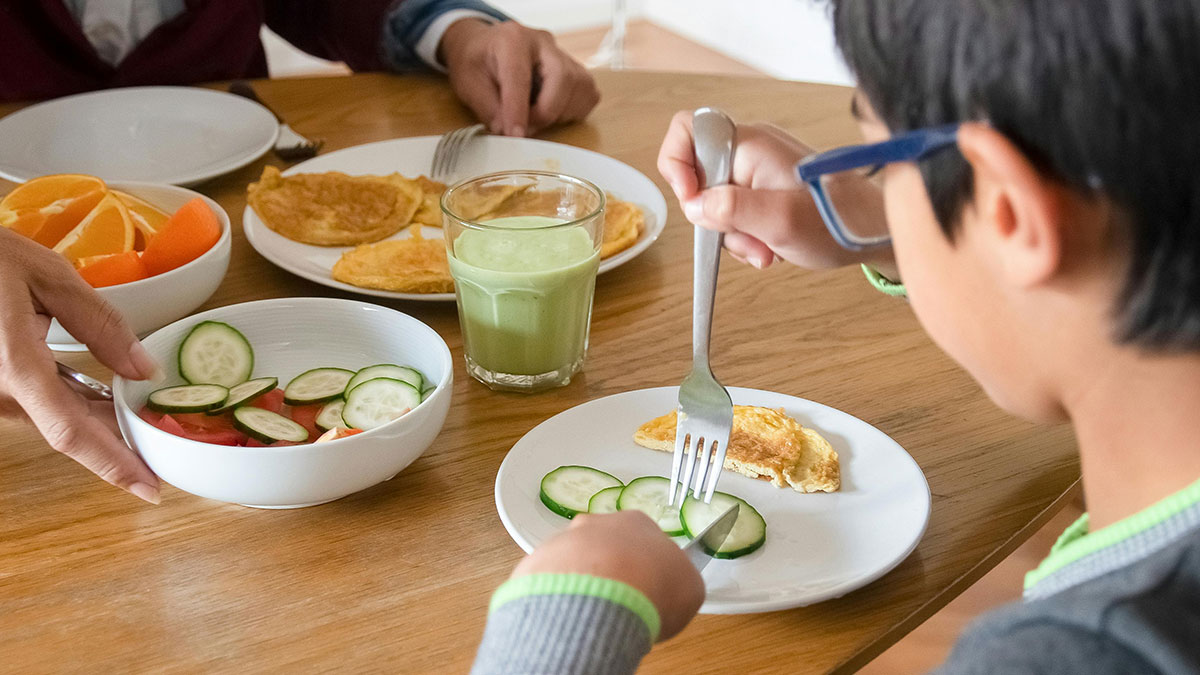
Man’s Clever Tricks Work On Picky Eater Niblings, But Backfire On Him As Sister Demands Free Meals
Kids can be picky eaters and it’s not always easy for parents to find alternatives. Statistics with different samples show that a wide range of children, from 8% to 50%, are picky eaters. So, when this uncle was able to feed the kids veggies, their parents were so happy they asked him to do it every day.
The kicker? Since he’s the mother’s brother, they expected him to do it for free. Because it would be too time-consuming, the man refused, but he checked with the internet: was he a jerk to say ‘no’?
It’s hard to get kids to eat their veggies, but this uncle seemed to crack the code
Image credits: Kampus Production/Pexels (not the actual photo)
The mom then asked if he could cook for the kids every day, but expected him to do it free of charge
Image credits: Andrea Piacquadio/Pexels (not the actual photo)
Image credits: ClassroomBoring115
When it comes to picky eating, the fault might be in our genes
Image credits: Nicola Barts/Pexels (not the actual photo)
Raising kids is a tough job, and getting them to eat their veggies is just one part of it. Interestingly, whether a kid is a picky eater or not might be the parents’ “fault”. One recent study suggests that it might be in our genes rather than a learned behavior.
The researchers studied identical and non-identical twins and found that the non-identical children had fewer similarities in their picky eating than the identical pairs. One of the study’s authors Moritz Herle told CNN that their findings might alleviate the blame that’s nowadays directed at parents.
“Our research indicates that differences between children’s fussy eating can be largely attributed to genetic factors,” Herle said. The study’s other lead author, UCL researcher Zeynep Nas, also said: “We hope our finding that fussy eating is largely innate may help to alleviate parental blame. This behavior is not a result of parenting.”
However, they also did find a correlation between a child’s picky eating and their surroundings. When the child is still a toddler, they might be influenced easier. So, if parents notice they’re becoming picky eaters, early intervention can help prevent pickiness in the future.
Previous research from 2020 also shows that not all picky eaters outgrow this behavior. Yet even those who remain picky eaters in adulthood usually do just fine. “While some research suggests that kids may be low in some nutrients as a result of picky eating, overall most of them do just fine — they aren’t underweight or suffering from reduced growth or any serious negative health consequences,” researcher and pediatrician Megan Pesch says.
Parents might worry too much; most kids are getting enough nutrients to support their health
Image credits: cottonbro studio/Pexels (not the actual photo)
But how can parents actually deal with their children when they’re picky eaters? Experts say that the most important thing is not to turn mealtime into a power struggle. A child should only eat when they’re hungry, so, forcing them when they’re not will only make things worse.
Experts at the C.S.Mott Children’s Hospital recommend parents set consistent eating times. Children should have two or three meals a day and two or three snacks in between. The ideal time between each should be two or three hours.
The environment is also important. Parents should make sure their children sit down for a meal and remain seated until they finish; the same goes for snacking. If needed, parents can set a timer: a meal should last from 20 to 30 minutes, snacking — about 10 to 15.
In general, experts advise parents to look at things calmly. In a previous interview, pediatric dietician and feeding therapist Lucy Upton told Bored Panda that it’s not the end of the world if a kid doesn’t eat their veggies once in a while.
“I often remind parents that a balanced plate and diet doesn’t need to be overcomplicated. Often, children are getting enough variety to support their health,” she said.
If parents are really worried, they can write down what their child is eating. “Make sure there is at least something from every food group,” the pediatric dietitian said. “Carbohydrates, fruits, vegetables, dairy or fortified alternatives, and protein-rich foods is a great starting point.”
“If any column looks more sparse, you might want to prioritize plenty of exposure to those foods first.” Fortified foods are also an option: “Ready oats, cereals, bread, and even some milk can be helpful,” Upton told us.
Turns out, the kids aren’t fans of their parents’ cooking in general, not just the veggies
Many people agreed with the uncle that it would be unfair to him
However, a couple of others pointed out that family members should help each other out
Poll Question
Thanks! Check out the results:
Explore more of these tags
Gotta hand it to the YTA trolls who think someone should take on daily parental duties for three children at age 25. How is this ever supposed to end?
They were really grasping at straws here. "Umm... YTA because you... Umm... Kids! Kids are our future."
Load More Replies...So he did her a favor and it backfired on him. Pfff sister needs to get off her high horse and start saying thank you and be grateful for what he did. Not sit there acting entitled because she won't replicate it.
The kids are the future?!?!? Wow, what a troll! Sure, they may be the future, but if I'm not getting paid to do what SIL wants me to do... They're not getting anything out of me... In the future!
Gotta hand it to the YTA trolls who think someone should take on daily parental duties for three children at age 25. How is this ever supposed to end?
They were really grasping at straws here. "Umm... YTA because you... Umm... Kids! Kids are our future."
Load More Replies...So he did her a favor and it backfired on him. Pfff sister needs to get off her high horse and start saying thank you and be grateful for what he did. Not sit there acting entitled because she won't replicate it.
The kids are the future?!?!? Wow, what a troll! Sure, they may be the future, but if I'm not getting paid to do what SIL wants me to do... They're not getting anything out of me... In the future!

 Dark Mode
Dark Mode 

 No fees, cancel anytime
No fees, cancel anytime 


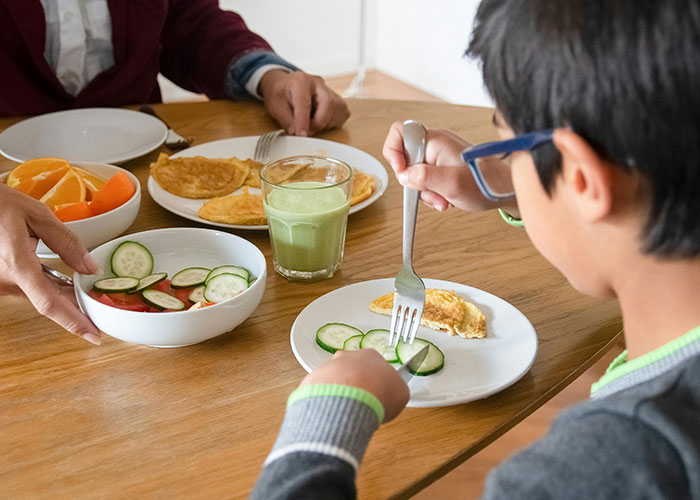
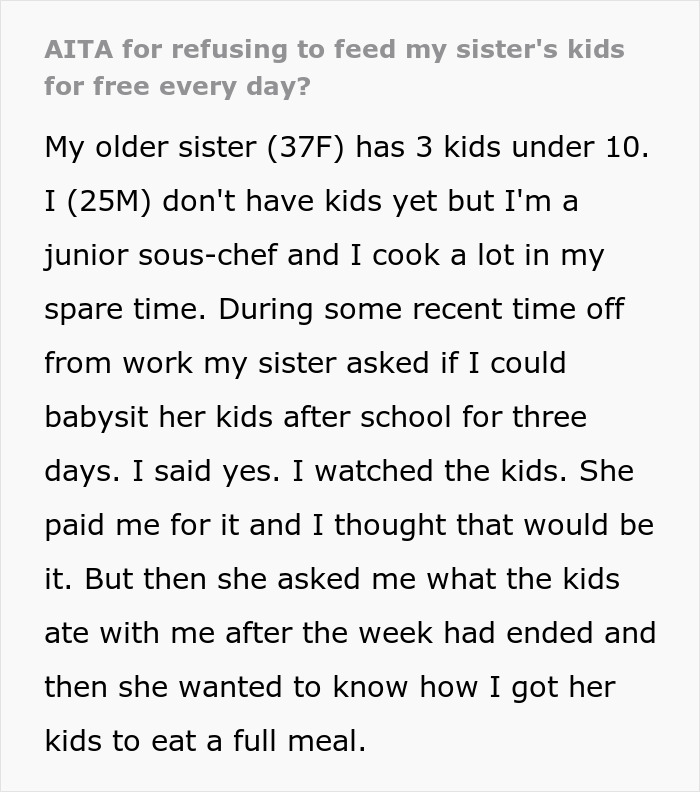
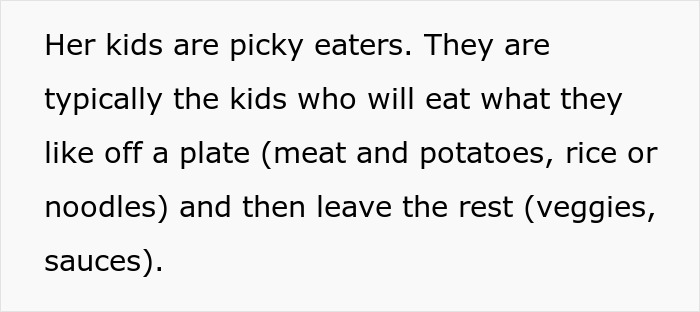
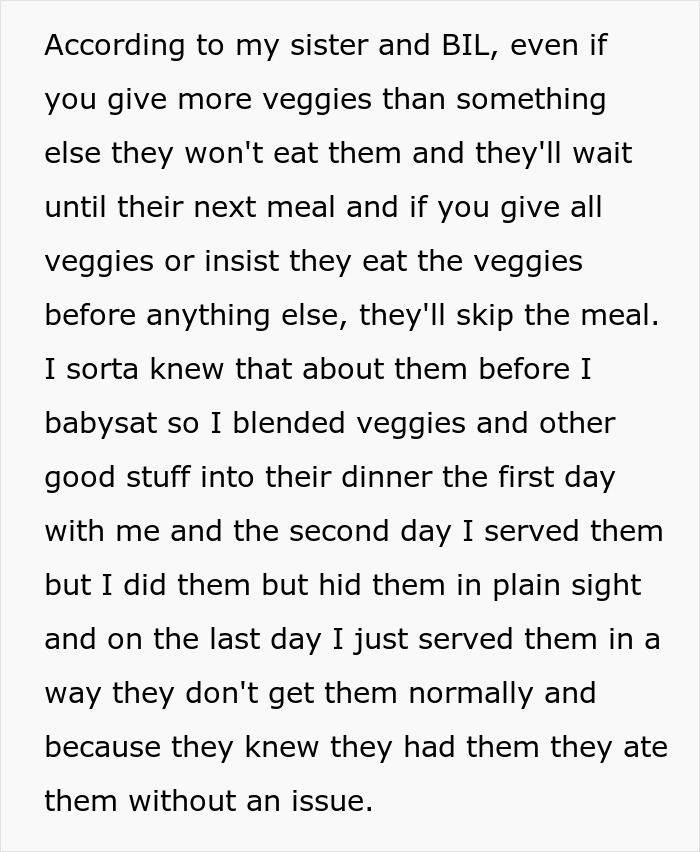

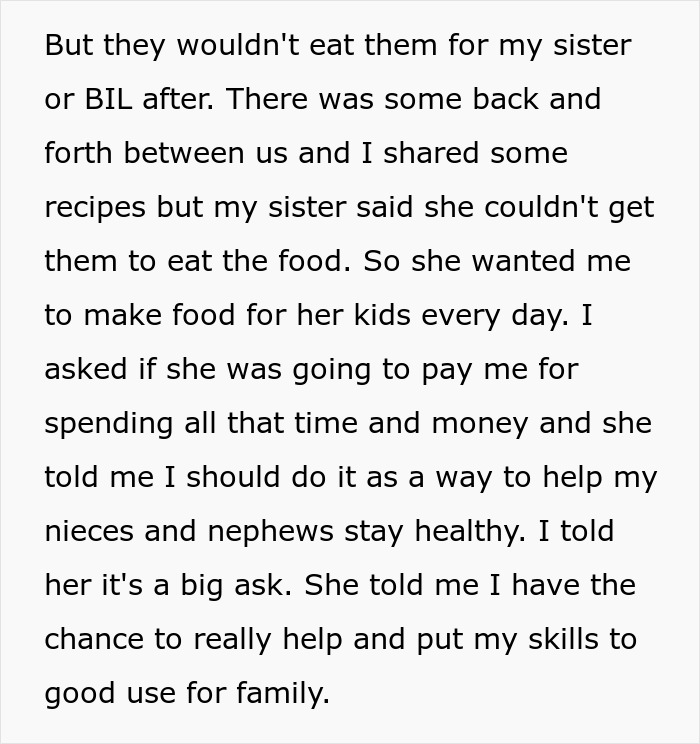
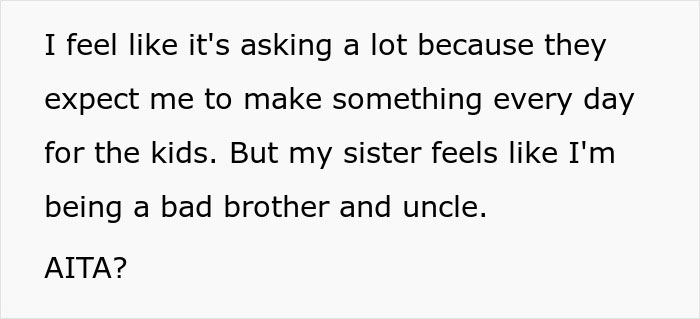
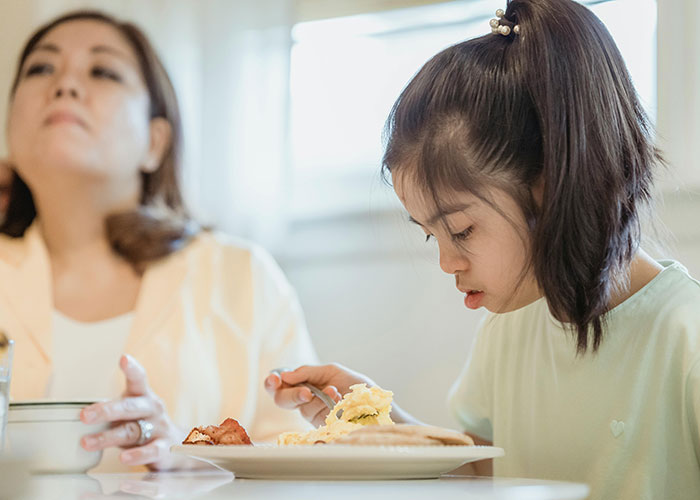
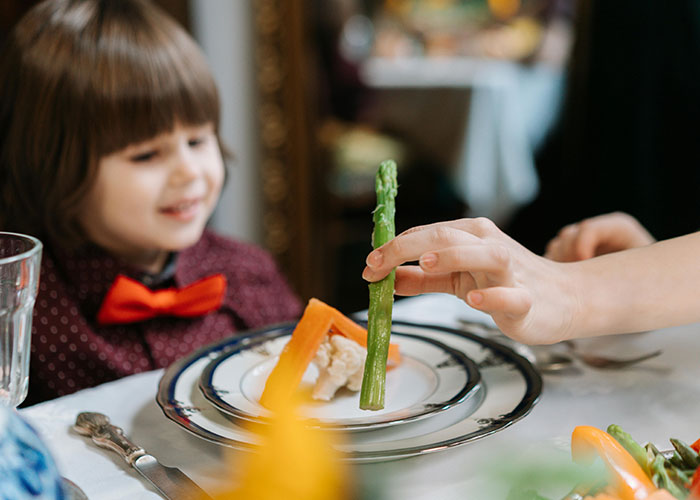
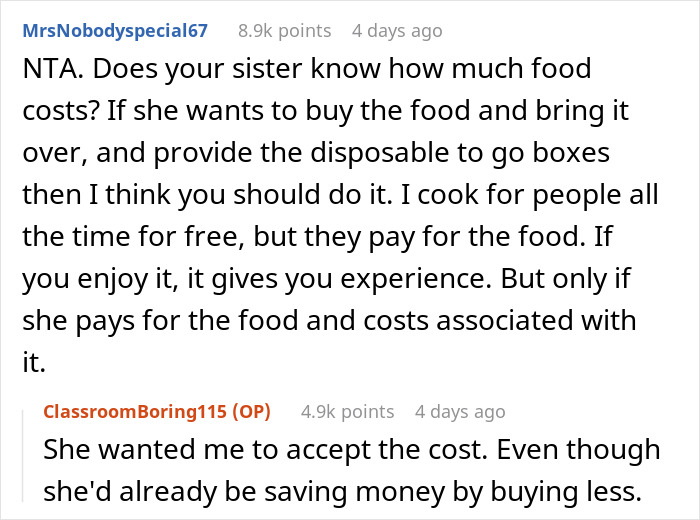
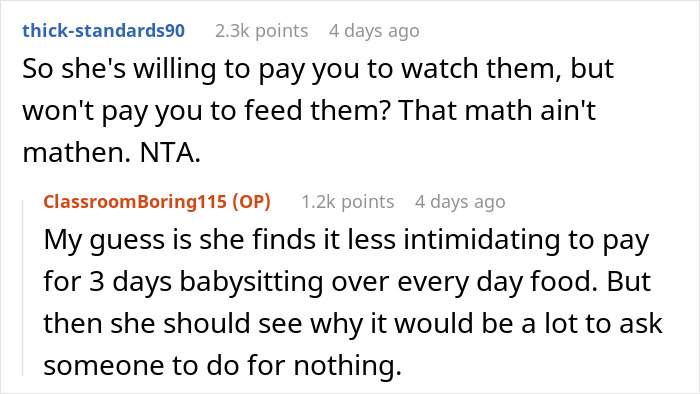
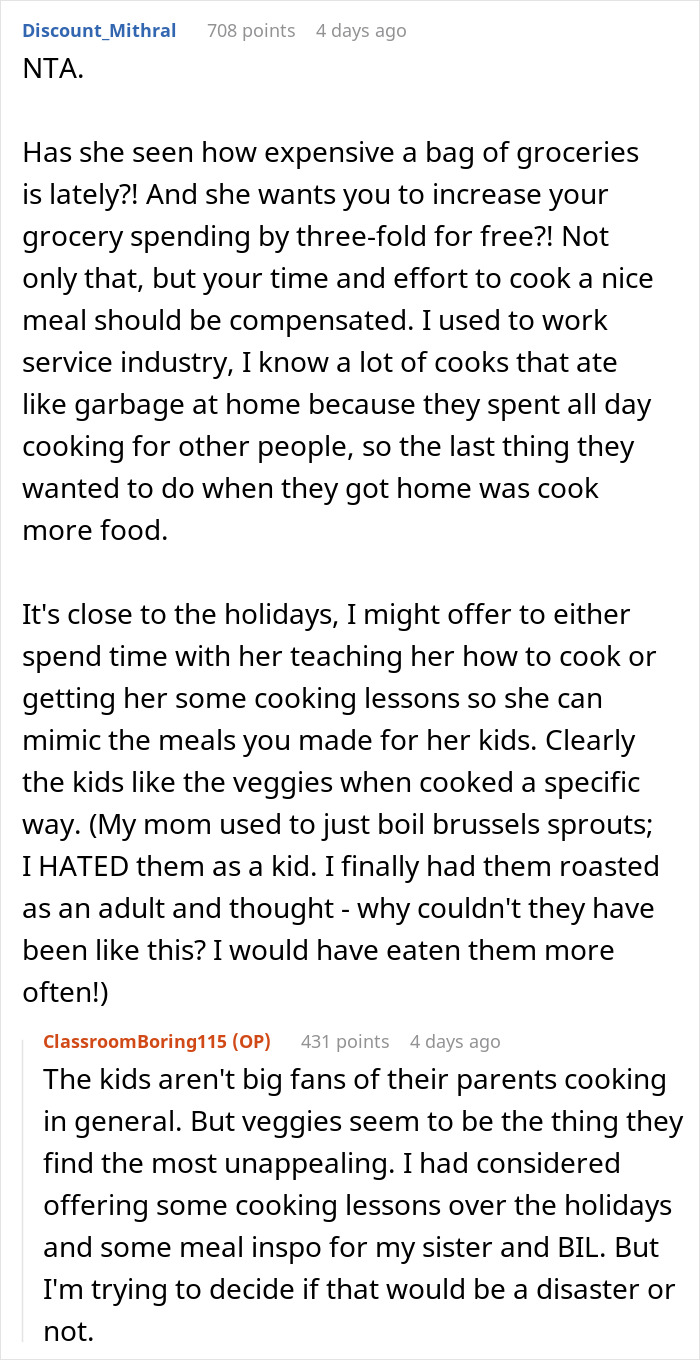
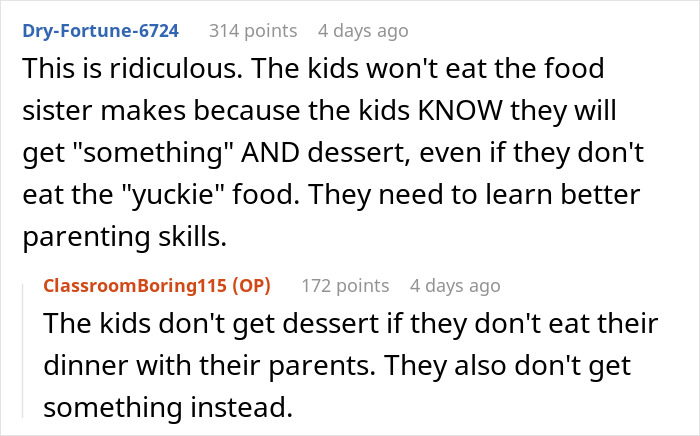
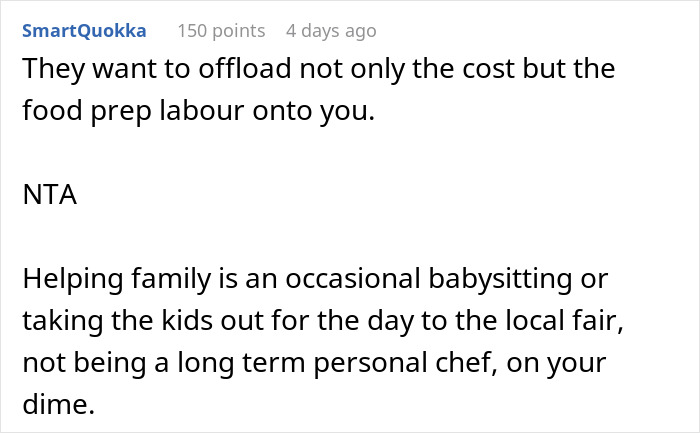
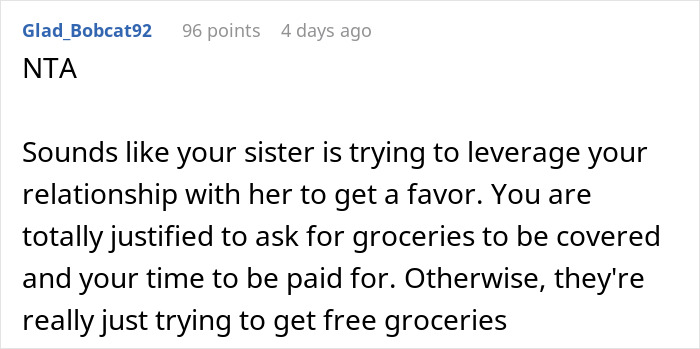
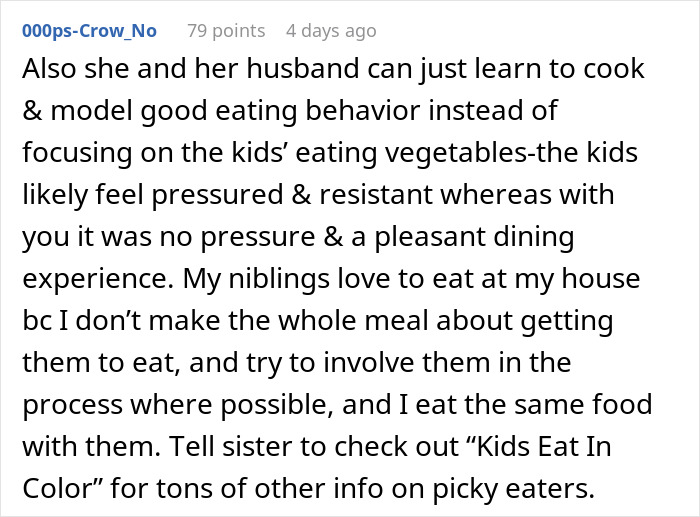
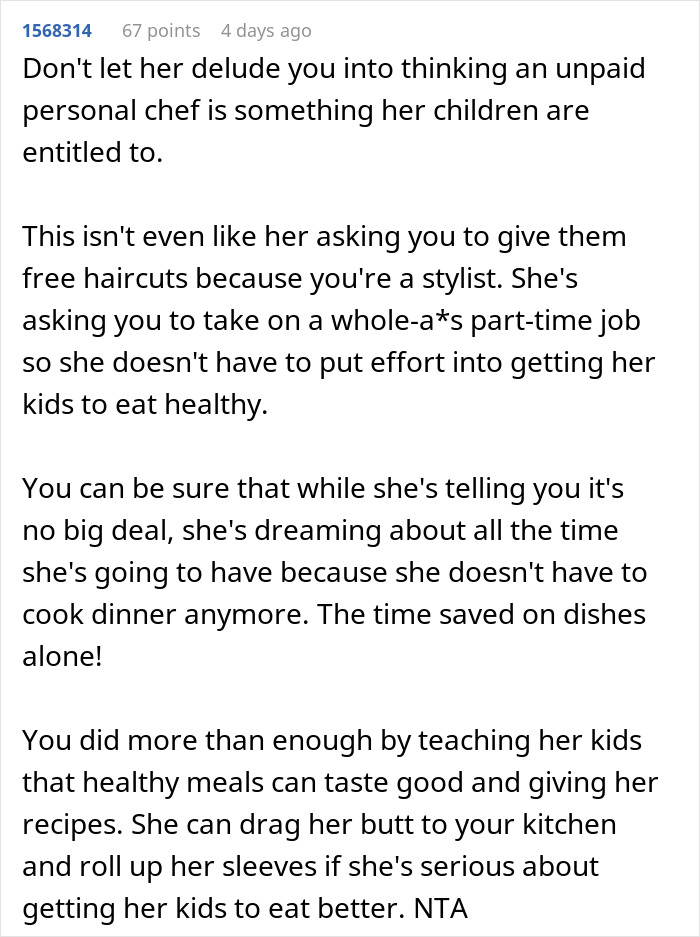

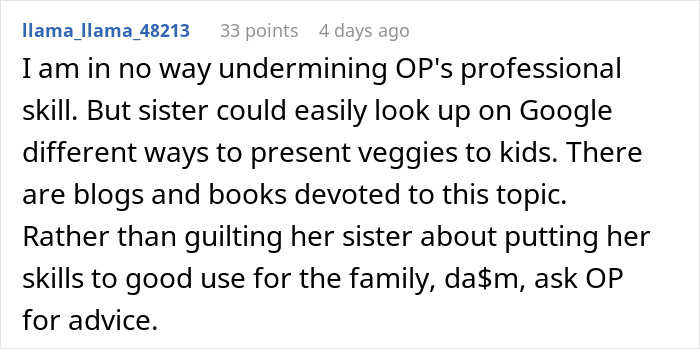



















































35
26